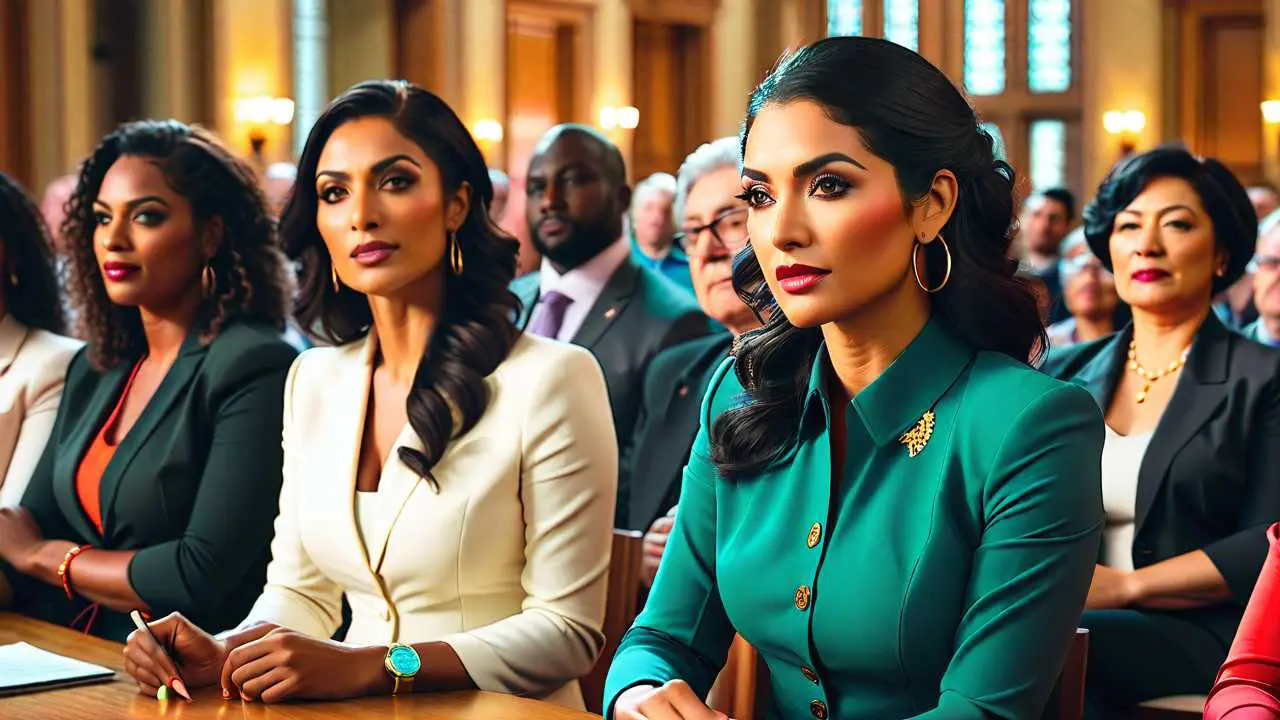Politics
How Can One Start a Career in Politics?

If you’ve ever considered a career in politics, the path may seem challenging. However, by taking deliberate steps and investing in your personal and professional growth, you can set yourself on the right course. From understanding your own motivations to actively engaging with your community, the journey toward a political career is multifaceted. By exploring avenues of education, skill development, networking, and advocacy, you can pave the way for a meaningful and impactful future in the field of politics.
Self-assessment and Goal Setting
Prior to starting a career in politics, conducting a thorough self-assessment and setting clear, achievable goals is vital to pave the way for success in this competitive field. Understanding your strengths, weaknesses, values, and motivations will provide you with a solid foundation to build upon. Reflect on your communication skills, leadership qualities, and ability to work under pressure. Consider how you handle conflicts, connect with diverse groups, and adapt to changing situations. By identifying areas for growth and development, you can tailor your goals to align with your aspirations and capabilities.
Setting specific, measurable, attainable, relevant, and time-bound (SMART) goals is essential in politics. Whether aiming for a leadership position, advocating for a cause, or running for office, your goals should be well-defined and actionable. Establish milestones to track your progress and make adjustments as needed. Engage with mentors, seek feedback, and continuously evaluate your performance to stay on track towards achieving your objectives.
Education and Skill Building
Improving your education and skill set is vital for establishing a strong foundation and staying competitive in the dynamic world of politics. Here are four key ways to boost your capabilities and readiness for a career in politics:
- Higher Education: Pursuing a degree in political science, public administration, law, or international relations can provide you with a solid academic background and a deep understanding of political systems and processes.
- Public Speaking and Debate: Developing strong communication skills through public speaking engagements, debates, and presentations can help you effectively convey your message and connect with diverse audiences.
- Critical Thinking: Cultivating your critical thinking abilities by analyzing complex issues, evaluating evidence, and forming logical arguments is essential for making informed decisions and developing sound policies.
- Leadership Development: Engaging in leadership programs, workshops, or roles within student organizations can help you hone your leadership skills, build teamwork capabilities, and inspire others towards a common goal.
Networking and Internships
Improving your career prospects in politics involves strategically leveraging networking opportunities and gaining practical experience through internships.
Networking plays a vital role in politics, as it allows you to connect with key individuals, build relationships, and stay informed about upcoming opportunities. Attending political events, joining organizations related to your interests, and utilizing social media platforms can all help expand your network.
Additionally, internships provide valuable hands-on experience in various aspects of political work, from constituent services to policy research. They offer a chance to apply theoretical knowledge in real-world settings, develop essential skills, and make important connections within the field.
Securing internships with elected officials, political campaigns, advocacy groups, or government agencies can significantly improve your understanding of the political landscape and boost your credibility when seeking future career opportunities.
Community Engagement and Advocacy
Engaging with your community and advocating for important issues are crucial steps towards establishing yourself in the field of politics. Community engagement not only allows you to connect with the people you aim to represent but also helps you understand their needs and concerns better.
Advocating for causes you’re passionate about showcases your leadership skills and commitment to creating positive change. Here are four key strategies to enrich your community engagement and advocacy efforts:
- Attend Local Meetings and Events: Show your presence in the community by attending town hall meetings, neighborhood gatherings, and local events.
- Volunteer for Nonprofit Organizations: Get involved with nonprofits that align with your values and goals to demonstrate your dedication to serving the community.
- Create Online Campaigns: Utilize social media platforms to raise awareness about important issues and mobilize support for your causes.
- Collaborate with Like-minded Individuals: Build alliances with other community advocates to amplify your impact and work towards common goals effectively.
Frequently Asked Questions
How Important Is Personal Branding in a Political Career?
You know, personal branding in a political career? It’s like oxygen for a fire – essential. It shapes perception, builds trust, and sets you apart. In today’s world, it’s not just important; it’s non-negotiable.
What Are the Best Strategies for Managing Public Scrutiny?
To manage public scrutiny effectively, maintain transparency, address criticism constructively, and stay true to your values. Engage with your constituents, communicate openly, and demonstrate accountability. Welcome feedback, learn from mistakes, and aim for continuous improvement.
Can Prior Controversial Actions Impact a Political Career?
Yes, prior controversial actions can significantly impact a political career. Transparency, accountability, and effective communication are vital in managing public perception. Address the issues directly, showcase growth, and align actions with values to rebuild trust.
How Can One Effectively Handle Political Adversaries?
Facing political adversaries is inevitable. Stay composed, address issues directly, and focus on shared goals. Use respectful yet firm communication. Build alliances and seek common ground. Remember, effective leadership shines in adversarial environments.
Is a Background in Law Necessary for a Political Career?
Having a background in law can be beneficial for a political career. It provides knowledge of legal frameworks, critical thinking skills, and understanding of governance. While not mandatory, it can give you an edge in maneuvering legislative processes.

Hello there! I’m Jeremy Ramirez, your go-to guy for all things content marketing and social media at NewsScroller. Currently residing in the vibrant city of Omaha, NE, I’m living my dream of combining my passion for journalism with the dynamic world of digital media.
I’m a proud graduate of the University of Nebraska, where I honed my skills and earned a degree in journalism. My college days were filled with endless learning, coffee-fueled study sessions, and the excitement of discovering the power of storytelling.
Post-graduation, I found my calling at NewsScroller, where I currently lead a team of creative minds in shaping compelling content strategies. Every day is a new adventure here – crafting stories, analyzing trends, and engaging with our vibrant online community.
When I’m not immersed in the digital world, you’ll find me cherishing moments with my amazing wife and our two energetic boys. Our family is completed by Dagwood, our adorable Pug, who always brings smiles to our faces.
Traveling is my escape and inspiration. I love exploring new cultures, tasting local cuisines, and capturing memories through my lens. As a speaker at social media events, I enjoy sharing insights and learning from fellow enthusiasts.
Curious about content marketing strategies or the latest social media trends? Or maybe you want to exchange travel stories? Feel free to reach out. I’m always up for a chat and eager to connect with like-minded individuals. Let’s navigate the exciting world of digital media together!
Want to know more or say hi? Drop me a message anytime!

